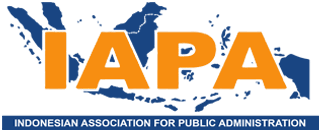THE EVALUATION OF INDONESIA'S BASIC EMERGENCY OBSTETRIC CARE PROGRAM
DOI:
https://doi.org/10.30997/jsh.v15i1.11040Keywords:
Evaluate-Program, PONED, Authority, CollaborationAbstract
The research is motivated by the ineffectiveness of the implementation of the Basic Emergency Obstetric and Neonatal Services (PONED) program at the Bangetayu Public Health Center in Semarang City. This ineffectiveness is primarily attributed to inhibiting factors such as poor communication, a shortage of human resources, and insufficient facilities and infrastructure. These challenges have adversely affected the quality of healthcare services provided to the community and have hindered the program from achieving its intended goals. This research aimed to evaluate the PONED Program implementation at health centres to determine the factors driving and inhibiting its success. This descriptive and qualitative research was carried out at the Bangetayu Public Health Centre, one of the primary health care centres with Basic Emergency Obstetric and Neonatal Services (PONED) in Semarang City. The purposive sampling method was used to collect data from 15 informants through interviews. Public compliance with the program could be seen from the very high participation of citizens in PONED socialization. Community participation in identifying problems and determining the PONED strategy with stakeholders is not in sync with the activities budgeted in the Regional Revenue and Expenditure Budget as deconcentration funds. Program efficiency in terms of task delegation was quite good, although not optimal. Program effectiveness/relevance was not yet fully effective. This evaluation showed that the authority factor greatly influenced the operation of the three indicators. The authority factor of the City Government of Semarang concerned the application of a merit system and the principle of deconcentration in monitoring, as well as special allocation funds for physical/non-physical infrastructure, including competency improvement. Factors supporting the implementation of the PONED Health Center Program found that there were aspects of stakeholder collaboration that determined the success of the program, in addition to aspects of resources, aspects of implementers' attitudes, and aspects of bureaucratic structure.
References
Bangetayu Public Health Center Semarang (2016). 2016 Public Health Center Strategic Plan.
Chasanah, S.U. (2015). Peran Petugas Kesehatan Masyarakat dalam Upaya Penurunan Angka Kematian Ibu Pasca MDGs. [The role of community health officers in efforts to reduce post-MDGs maternal mortality rate]. Kesehatan Masyarakat Andalas, 9(2), 73-79.
Desita, U.E. (2012). Pelaksanaan Pelayanan Obstetri Neonatal Emergensi Dasar (PONED) di Public Health Center Karang Malang Semarang [Implementation of basic emergency neonatal obstetric services (PONED) at the Public Health Center Karang Malang Semarang]. Jurnal Kesehatan Masyarakat, 1(2), 126-132.
Dunn, W.N. (2003). Pengantar analisis kebijakan publik [Introduction of public policy analysis]. Yogyakarta: Gadjah Mada University Press.
Law on Health, Pub. L. No. 36 (2009). https://peraturan.bpk.go.id/Home/Details/38778/uu-no-36-tahun-2009
Law on Public Service, Pub. L. No. 25 (2009). https://peraturan.bpk.go.id/Home/Details/38748
Law on Regional Government, Pub. L. No. 23 (2014). https://peraturan.bpk.go.id/Home/Details/38685/uu-no-23-tahun-2014
Miles, M.B, Huberman, A.M, & Saldana, J. (2014). Qualitative data analysis: A. methods sourcebook, (3rd Ed). Sage Publications.
Ministry of State Apparatus Empowerment Number 63 of 2003 concerning Guidelines for Public Services.
Minister of Health Regulation Number 741 of 2008 concerning Minimum Standards for Health Services in Indonesia.
Ministry of Health. (2009). Guidelines for the Maternity Planning and Complications Prevention Program with Stickers to Accelerate the Decline of MMR.
Ministry of Health (2004), Guidelines for the Development of Basic Emergency Obstetric-Neonatal Services (PONED).
Quinn, R.E. & Cameron, K. (1983). Organizational life cycles and shifting criteria of effectiveness: Some preliminary evidence. Management Science, 29(1), 33-51.
Rachmawati, T. & Suprapto, A. (2010). Inovasi Implementasi Public Health Center PONED dalam upaya akselerasi penurunan angka kematian ibu dan bayi di tiga Kabupaten di Jawa Timur [PONED Public Health Center in implementation of innovation in efforts to accelerate reduction of maternal and infant mortality rates in three regencies in East Java]. Buletin Penelitian Sistem Kesehatan 13(2), 109-115.
Shafritz. (2017). Introducing public administration. Routledge, Taylor & Francis.
Semarang City Regional Regulation Number 2 of 2015 concerning Maternal and Child Health. Semarang City Health Profile 2017. Retrieved from https://dinkes.semarangkota.go.id/asset/upload/Profil/Profil/Profil%20Kesehatan%202017.pdf
Semarang City Health Profile 2018. Retrieved from https://dinkes.semarangkota.go.id/asset/upload/Profil/Profil%20Kesehatan%202018.pdf
Subarsono. (2013). Analisis kebijakan publik (Analysis of public policy). Yogyakarta: Pustaka Pelajar.
Susanti, T. & Marom, A. (2019). Evaluasi program Puskesmas mampu PONED (Pelayanan Obstetri Neonatal Emergensi Dasar) di P Bangetayu Semarang. [Evaluation of the PONED (Basic Emergency Obstetrics and Neonatal Services) program at the Bangetayu Health Center, Semarang]. Journal of Public Policy and Management Review, 8(2), 148-168.
Tompkins, J.R. (2005). Organization theory and public management. Singapore: Thomson Wadworth.
Valentina, A.S. & Suryoputro, A. (2016). Analisis pelaksanaan sistem Pelayanan Obstetri Neonatal dan Emergensi Dasar (PONED) di Public Health Center Sitanggul Kabupaten Brebes [Analysis of the implementation of the Obstetrics, Neonatal and Basic Emergency Services System (PONED) at the Sitanggul Public Health Center, Brebes Regency]. Jurnal Kesehatan Masyarakat, 4(4), 154-161.
Yuningsih, T., Marom, A., Maesaroh, M. (2019). Program Public Health Center Mampu PONED (Pelayanan Obstetri Neonatal Emergensi Dasar) Sebuah inovasi bidang kesehatan di Semarang [Public Health Center Program of PONED (Basic Emergency Obstetrics and Neonatal Services) An innovation in the health sector in Semarang], Public Administration Journal, 1(4), 349-365.
Health Center & Hospital Basic Data Book, Central Java Provincial Health Office, 2019.
State Budget Activity Report, Public Health Program. Central Java Provincial Health Office, 2020.
Downloads
Published
How to Cite
Issue
Section
License
Copyright (c) 2024 Jurnal Sosial Humaniora

This work is licensed under a Creative Commons Attribution-ShareAlike 4.0 International License.
Authors submitting manuscripts must understand and agree to copyright the manuscript of the article was transferred to OJS Djuanda University. All rights reserved. The copyright release statement for the Journal of Social Humanities is set out in the Agreement Transfer of Copyright. This work is licensed under Creative Commons Attribution-ShareAlike (CC BY-SA) version 4.0 where Author and Readers can copy and redistribute material in any media or format , as well as mixing, modifying and building materials for any purpose, but they must provide appropriate credit (citing articles or content), provides a link to the license, and indicates when changes have been made. If you mix, modify, or develop, the materials you have to distribute your contributions are under the same license as the originals.
















